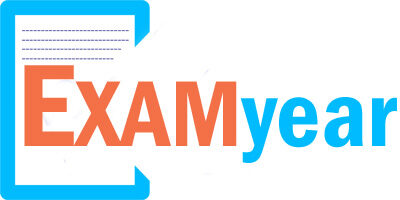Cloze Test for SSC CGL
Interested users can download the Cloze Test for SSC CGL Previous Papers from the links enclosed below. Download the Last 5 Years SSC Combined Graduate Level Exam Solved Question Papers on Cloze Test along with the Answers of each question.

These SSC Combined Graduate Level Cloze Test Model Question Papers may vary from the Actual paper. Use the SSC Cloze Test Previous Papers as a reference for the exam preparation. Check the SSC CGL Cloze Test Previous Papers from this page.
Checking all the Staff Selection Commission CGL Cloze Test Model Papers and Sample Papers!! Later, check the Latest SSC Cloze Test Question Pattern. The SSC Combined Graduate Level Cloze Test Previous Papers pdf Free Download available here.
Hence, candidates who are going to write Combined Graduate Level exam may download Staff Selection Commission CGL Cloze Test Model Papers with Answers for free of cost.
Aspirants can also get Cloze Test for SSC CGL Question Papers. Download the Cloze Test for SSC CGL Previous Ten Years Papers within few seconds for free of cost.
Cloze Test Questions for SSC CGL
Directions: In the following passages there are blanks, each of which has been numbered. These numbers are printed below the passage and against each, five words are suggested, one of which fits the blank appropriately. Find out the appropriate words.
Cloze Test Practice Set |
Practice Exercise – 1
Fourteen centuries ago when the world was much younger, the ruler of all India, Rajah Balhait, was ————-1———- about his people. A new game of dice, called nard, had ———-2——— the imagination of his subjects. Teaching them that chance alone – a roll of the dice – guided the ———-3——— of men. All who played this game of fortune lost their ——-4———- in the virtues of courage, prudence, wisdom and hope. It bred a fatalism that was ———-5——— the spirit of the kingdom.
Rajah Balhait commissioned Sissa, an intelligent courtier, at his court, to find an answer to this ——–6————–. After much ———–7———– the clever Sissa invented another game, chaturanga, the exact ————8———— of nard, in which the four elements of the Indian army were the key pieces. In the game these pieces – chariots, horses, elephants and foot soldiers — joined with a royal counsellor to defend their king and defeat the enemy. Forceful —————9——— was demanded of the players – not luck. Chaturanga soon became more popular than nard, and the ———-10———— to the kingdom was over.
1. 1)concerned 2) confident 3) ignorant 4) indifferent 5) partisan
2. 1) propelled 2) enshrined 3) captured 4) activated 5) enhanced
3. 1)communities 2) ways 3) abnormalities 4) destinies 5) groups
4. 1) bravado 2) interest 3) peace 4) wealth 5) faith
5. 1) appalling 2) crushing 3) moistening 4) promoting 5) overwhelming
6. 1) apprehension 2) risk 3) problem 4) game 5) destiny
7. 1) deliberation 2) absorption 3) insight 4) hesitation 5) reluctance
8. 1) nature 2) equivalent 3) picture 4) opposite 5) replica
9. 1) prediction 2) concentration 3) manipulation 4) attack 5) fortune
10. 1) devastation 2) anxiety 3) impeachment 4) nuisance 5) threat
Exercise -2
The first proposal I submitted for my dissertation at UCLA was to write a theory of personality. My chairman, a kindly man, smiled ————-1——– and told me that perhaps this was a bit ambitious for a young graduate student. ———-2———, l accepted his verdict and changed my topic, but not my desire. It ———–3———- later, when I had a chance to begin to ——–4———- a theory in my research on group dynamics for the Navy during the Korean War.
As I ——–5———— on the reasons for the persistence of my interest in the overarching theory, I had an ——6———– memory. When I was around eight years old, I was a ———7——— baseball fan, as was my father. My hero was Lou Gohrig. I would approach my father in an attempt to prove to him how good Gohrig really was: “He hit 363, had 49 home runs, batted in 165 runs. He’s terrific!” My father’s response caught me off guard : “Yes, but he can’t field.” I wasn’t prepared for that. From then on, my way of ———–8——— with my father’s responses was to make sure I knew everything about any topic I wanted to talk to him about. Partly as a ——-9———-, I became a holist. I had to make sure I had ———10———– for everything.
1. 1) usually 2) profusely 3) benignly 4) abruptly 5) decidedly
2. 1) Indolently 2) Skillfully 3) Enchanted 4) Constrained 5) Chagrined
3. 1) lamented 2) resurfaced 3) appreciated 4) provided 5) projected
4. 1) inject 2) involve 3) exhibit 4) formulate 5) establish
5. 1) pondered 2) evaluated 3) developed 4) perfected 5) appreciated
6. 1) interesting 2) obvious 3) engulfing 4) esteemed 5) evolving
7. 1) precarious 2) haunting 3) deliberate 4) pervasive 5) rabid
8. 1) patience 2) alliance 3) influence 4) coping 5) questioning
9. 1) custom 2) capacity 3) defence 4) preference 5) posterity
10. 1) consideration 2) accounted 3) longing 4) regard 5) established
Exercise – 3
In the thirties and forties, geography was ———1———- subject in schools. Children spent hours tracing maps and ———–2———- about strange places, peoples and customs. Harvard University ———-3———– its geography department after World War II. A string of leading universities in the United States ——–4———- suit. Geography has been tarred with the racist brush, and no one wants to be ———5———-.
David S Landes, professor of history and economics at Harvard University, makes a forceful ———–6———– for geography in his book, The Wealth and Poverty of Nations. Geography, he says, tells the unpleasant truth that nature is unfair, unequal in its ———7——— and that its unfairnesses are not easily ———8——–. For Landes, there is nothing racist in a geography that links ————-9———– and group behaviour to nature, no one can be praised or ———-10——— for the temperature of the air, the volume or timing of rainfall, or the topography.
1. 1) full-fledged 2) resourceful 3) decent 4) boring 5) famous
2. 1) knowledge 2) drawings 3) ignored 4) learned 5) figures
3. 1) established 2) nurtured 3) intensified 4) developed 5) abolished
4. 1) followed 2) cleared 3) prepared 4) wore 5) filed
5. 1) learned 2) contaminated 3) neglected 4) prepared 5) knowledgeable
6. 1) decision 2) impeachment 3) lesson 4) plea 5) plan
7. 1) behaviour 2) favours 3) sources 4) deal 5) functions
8. 1) sensed 2) placated 3) remedied 4) over-ruled 5) understood
9. 1) expediency 2) sentiments 3) performance 4) acquisition 5) obedience
10. 1) credited 2) implored 3) admired 4) flattered 5) blamed
Exercise – 4
The Government seems to be in right earnest to ensure more ——–1———– in governance. The Prime Minister’s announcement that his Government is ———2——- drafting legislation to ——–3——— the citizen’s right to information is indeed welcome. Though the talk on the right to information is .not new, we may ———4——– the bill to be brought early this time. The previous Government had set up a high-level committee to ————5———— a draft bill. But nothing has been heard about the matter since, ———-6———– the committee did quite some work. The issue, however, has come to such a pass that a solution cannot be ————-7———- further. Sunlight is the best disinfectant, a foreign judge once said, while ———8——– the unwarranted secrecy in an administrative system. When those in authority know that people have the right to ask questions and the government is under the ——–9———– to provide them with answers, ———-10——— of authority, or of public finances, for personal or party ends is less likely to happen.
1. 1) strictness 2) rudeness 3) leniency 4) economy 5) transparency
2. 1) personally 2) busy 3) not 4) reluctantly 5) absolutely
3. 1) presumption 2) absolve 3) curb 4) question 5) establish
4. 1) expect 2)wait 3) try 4) frustrate 5) appeal
5. 1) level 2) regard 3)prepare 4) enact 5)unearth
6. 1) even 2) as 3) because 4) until 5) though
7. 1) found 2) expected 3) delayed 4) looked 5) longed
8. 1) nurturing 2) criticising 3) demanding 4) appreciating 5) upholding
9. 1) pretention 2) affect 3) substance 4) obligation 5) property
10. 1) misuse 2) governance 3) dishonor 4) curbing 5) breach
Exercise – 5
In these days of economic liberalisation, globalisation, etc. materialistic values have assumed ——–1———- importance. Money, physical comforts and luxuries are the most sought after aspects. There has been ———-2———- competition. Such competition ———-3———– undue stress. The stress leads to ———–4———- of health of the people. Indian culture has ———5———- its striking uniqueness, as against the Western culture, in the fact that there is a ——6———- place for spiritualism in the value system in all walks of life. The spirituality is a very ———7———- force which helps us in maintaining our physical and mental health. It gives us ——–8——– to cope with the stress. Westerners have now ———–9———— the importance of spirituality and, therefore they have started ———10———— us in the matter of spirituality.
1. 1) usual 2) little 3)tangible 4) least 5) greater
2. 1) critical 2) unhealthy 3) unequalled 4) no 5) absolute
3. 1) releases 2) deserves 3) generates 4) demonstrates 5) suppresses
4. 1) neglect 2) illness 3) generation 4) deterioration 5) encroachment
5. 1) maintained 2) illustrated 3) marginalized 4) bestowed 5) forsaken
6. 1) vast 2) brief 3) formal 4) clean 5) distinct
7. 1) dormant 2) dedicated 3) vital 4) common 5) dynamic
8. 1) strength 2) tips 3) clearance 4) sermons 5) ideals
9. 1) informed 2) narrated 3) intensified 4) realised 5) invented
10. 1) encouraging 2) imitating 3)blaming 4) preaching 5)assuming



